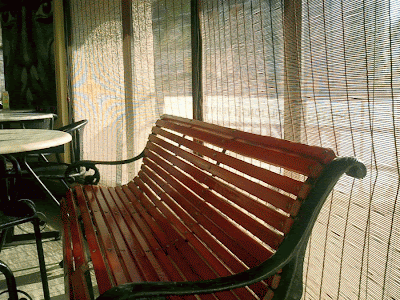I think these lines from a book a dear friend gave me sum up everything I've ever learned about happiness. All the meditation retreats in the world will not make a lasting difference, if in the end we don't love the world, and reach out to it with warmth - even the world outside our narrow circle of family and friends.
Hating the world, and being happy, apparently, are mutually exclusive :) (Been there, done that!!)
......................................................................................
"So much of spiritual life involves one's interior journey, yet for most of us spirituality gets expressed - even transformed - only in our relationships with others.
...Our relationships with others not only test our spiritual resources but push us to levels of development we could not attain through solitary practice.
More important, our gifts to others are the very fruits of our self-development. The two forms of life, communal and solitary, are mutually sustaining.
...Seeking only our own happiness is the surest way to remain unhappy. As the great monastic and scholar Thomas Merton puts it, "Isolation in the self, inability to go out of oneself to others, would mean incapacity for any form of self-transcendence. To be thus the prisoner of one's own selfhood is, in fact, to be in hell."
Page 64, 65. 'Learning to Fall, The Rewards of an Imperfect Life', Philip Simmons
Hating the world, and being happy, apparently, are mutually exclusive :) (Been there, done that!!)
......................................................................................
"So much of spiritual life involves one's interior journey, yet for most of us spirituality gets expressed - even transformed - only in our relationships with others.
...Our relationships with others not only test our spiritual resources but push us to levels of development we could not attain through solitary practice.
More important, our gifts to others are the very fruits of our self-development. The two forms of life, communal and solitary, are mutually sustaining.
...Seeking only our own happiness is the surest way to remain unhappy. As the great monastic and scholar Thomas Merton puts it, "Isolation in the self, inability to go out of oneself to others, would mean incapacity for any form of self-transcendence. To be thus the prisoner of one's own selfhood is, in fact, to be in hell."
Page 64, 65. 'Learning to Fall, The Rewards of an Imperfect Life', Philip Simmons








